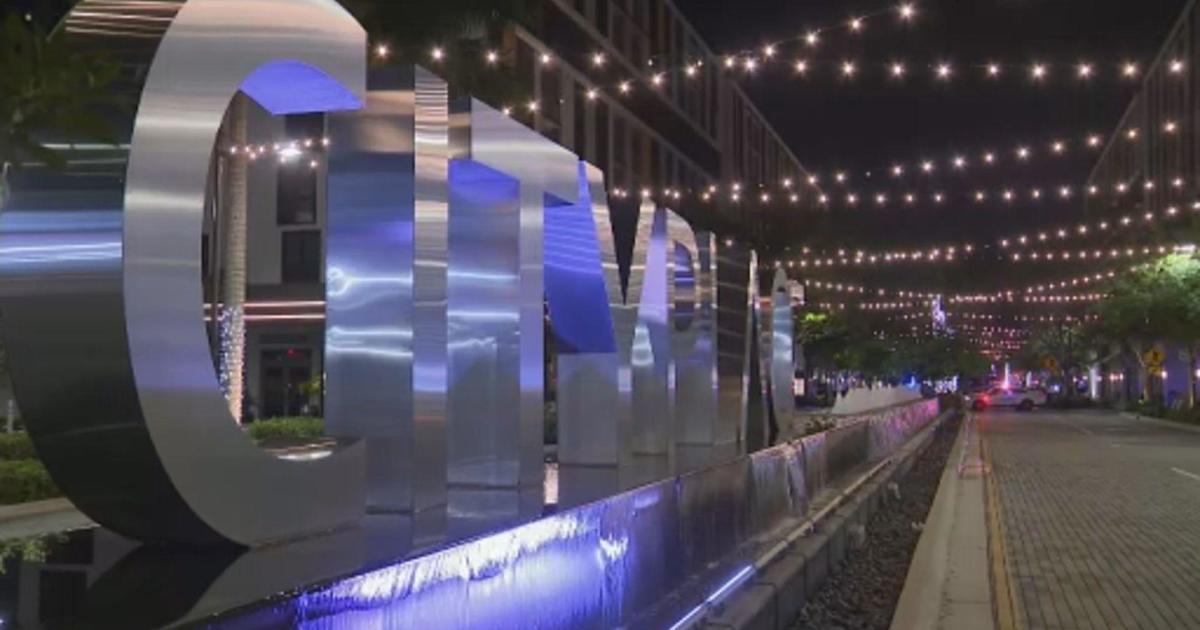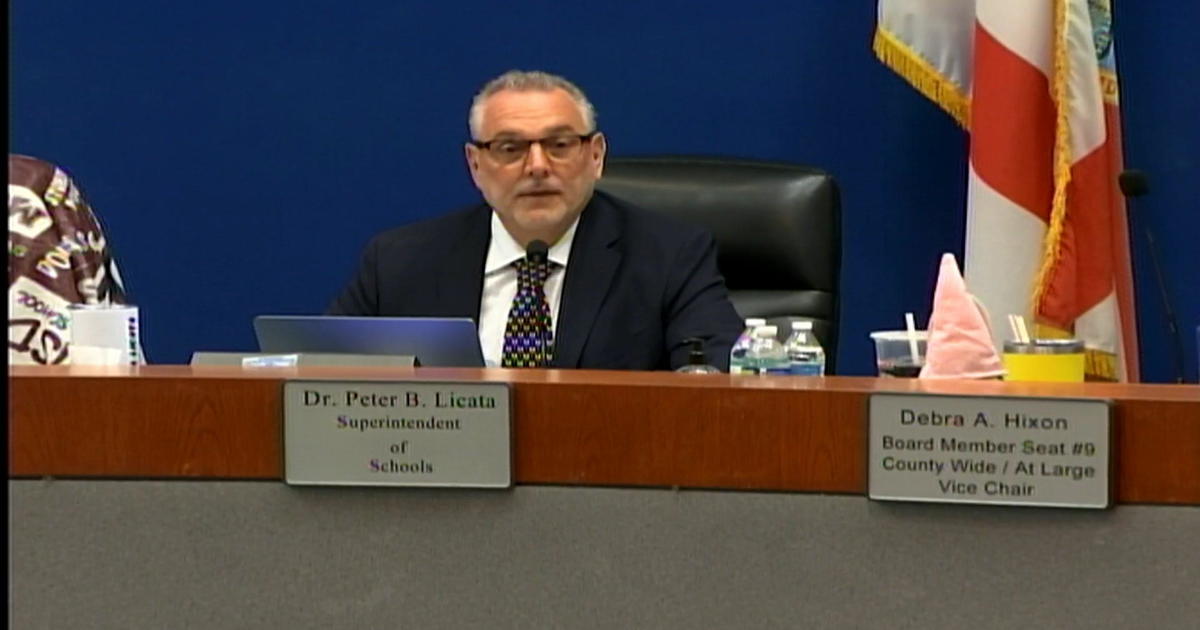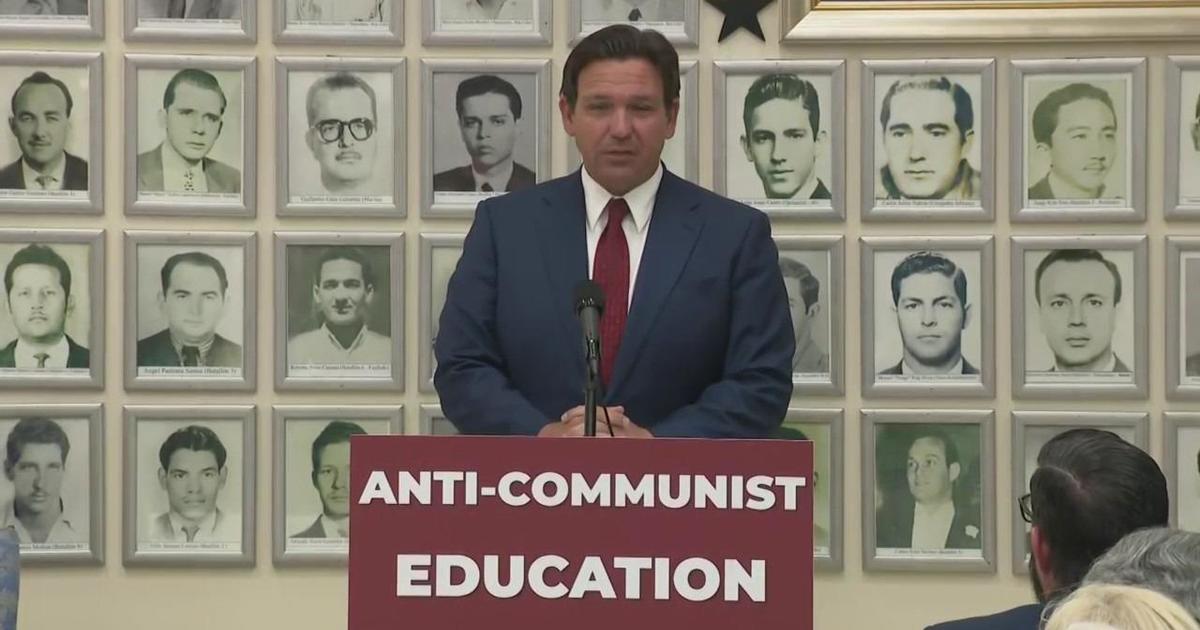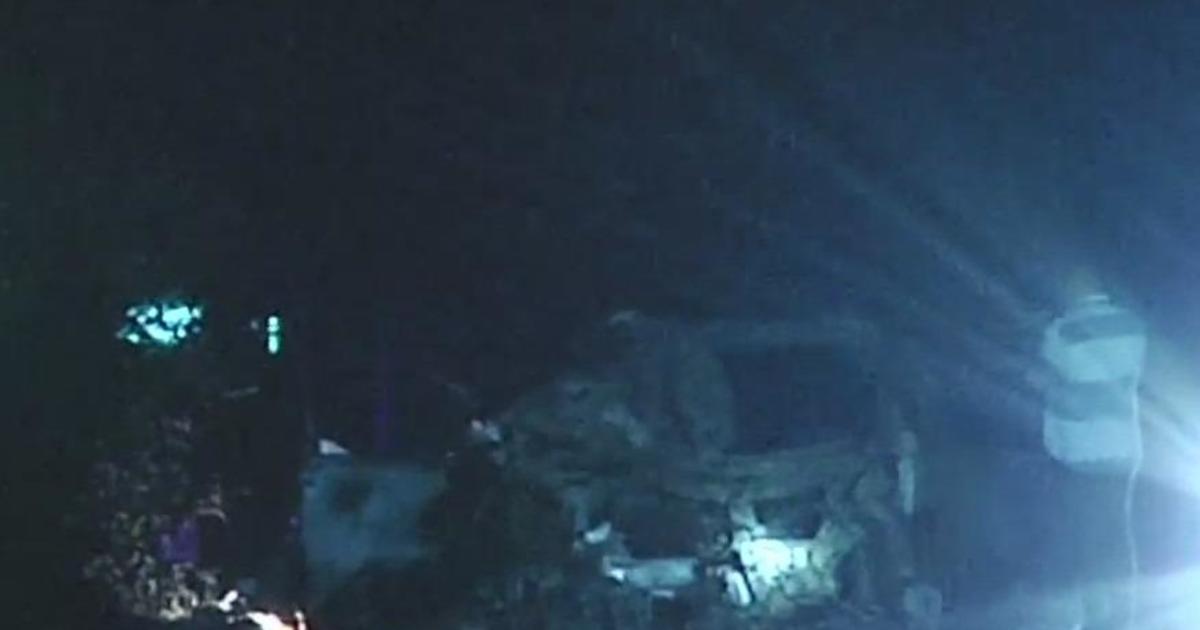Apple Opposes Order To Unlock San Bernardino Shooter's iPhone
Follow CBSMIAMI.COM: Facebook | Twitter
WASHINGTON, D.C. (CBSMiami) -- Apple CEO Tim Cook has said his company will fight a federal magistrate's order to hack the phone belonging to the alleged shooter of the December attack in San Bernardino, California.
Investigators are still trying to piece together a missing 18 minutes in the timeline of Farook and his wife, Tashfeed Malik, on December 2nd. The attack left 14 people killed and 22 injured.
In a letter posted Wednesday on Apple's website, Cook argued that the federal order requiring a back door installation on Syed Farook's iPhone would undermine encryption for all users by creating a vulnerability that could potentially be used on other devices in the future.
The U.S. Magistrate's ruling presents a first-of-its-kind measure in the debate surrounding privacy rights and national security interests. It demands Apple supply software that the FBI can then load onto Farook's phone bypassing a self-destruct feature that erases the phone's data after too many unsuccessful attempts to unlock it.
The FBI would then use encryption programs that try different combinations in rapid sequence to discover the password.
In Apple's response, Cook said, "We are challenging the FBI's demands with the deepest respect for American democracy and a love of our country. We believe it would be in the best interest of everyone to step back and consider the implications."
Apple has five days to file an appeal, which could end up going all the way to the Supreme Court.
Attorney and former federal prosecutor David Weinstein believes even if Apple wins this legal challenge, they will ultimately be forced to help law enforcement, like cell phone companies do.
"The telecommunications providers had some of these same complaints years ago....now communications providers are provided by law to do certain things," Weinstein told CBS4's Natalia Zea. "I think in the end, someone will create a law."
Some iPhone users think Apple should do whatever it can to help this investigation now.
"If it's for the public good and the public safety, then I'm all for it. If it's protecting Americans, then I think it should be done," said Artilis Carter.
Tony Casareale agrees and thought law enforcement already had rights to content on his phone.
"I just assumed they already had access or they could get it whenever they want it," said Casareale.
Others, like Steve Smith, say iPhone users' rights should come first. "I think it's an excuse to continue to reduce the amount of privacy that we have. Mr. Cook is going to have to stand his ground."
The American Civil Liberties Union weighed in on this too, releasing a statement reading in part,
"The Constitution does not permit the government to force companies to hack into their customers' devices. Apple is free to offer a phone that stores information securely, and it must remain so if consumers are to retain any control over their private data. The government's request also risks setting a dangerous precedent. If the FBI can force Apple to hack into its customers' devices, then so too can every repressive regime in the rest of the world."
Notable law enforcement leaders like New York City Police Commissioner Bill Bratton support the FBI's position, saying that law enforcement is being crippled by the opaque nature of technology.



